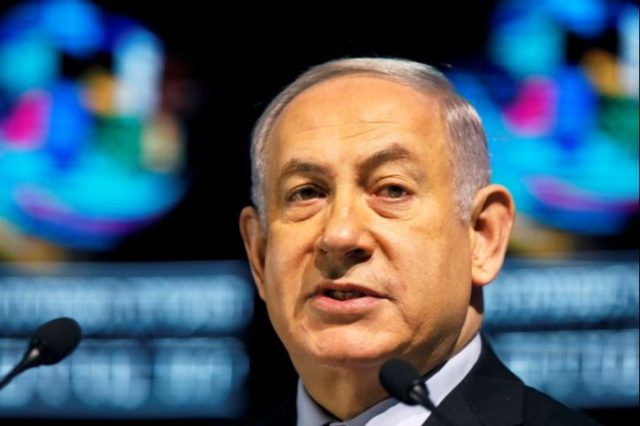Israeli Prime Minister Benjamin Netanyahu met Sudan’s leader Monday to discuss “normalisation” between the two states, his office said.Netanyahu met Abdel Fattah al-Burhan, chairman of Sudan’s ruling sovereign council, in the Ugandan city of Entebbe, a statement from his office said.The countries are technically at war and Sudan could become only the third Arab state to recognise Israel.”History,” Netanyahu said in a tweet announcing the meeting.
There was no immediate confirmation from Khartoum but the Palestinians denounced the meeting as a “stab in the back”.Sudan’s sovereign council is a transitional body of military officials and civilians that is currently headed by Burhan, an army general.It was created as part of a power-sharing agreement between the military and civilians following the overthrow of longtime dictator Omar al-Bashir last year.
The statement from Netanyahu’s office said the two men had “agreed to start cooperation leading to normalisation of the relationship between the two countries”.It added that the prime minister believed “Sudan is headed in a new positive direction” and that he had expressed this view to US Secretary of State Mike Pompeo.
“Burhan is eager to help his country modernise by taking it out of isolation and putting it on the world’s map,” it said.The US in December lifted fast-changing Sudan from a blacklist for religious freedoms violations, but still labels it a state sponsor of terrorism. Regional ally Saudi Arabia last month called for the US to remove that classification.On Sunday, Sudan’s ruling sovereign council said that Burhan would visit Washington “soon” at the invitation of Pompeo.US President Trump last week released a Israeli-Palestinian peace plan widely seen as skewed towards Israel.
It gave the Jewish state the green light to annex settlements in the occupied West Bank, as well as the Jordan Valley, a key part of the territory Palestinians see as their future state.The Palestinians have been seeking to build unified opposition among Arab nations in opposition to the plan, with the Arab League rejecting it on Saturday.The Palestinians said Monday’s meeting undermined those efforts.
“This meeting is a stab in the back of the Palestinian people… at a time when the (US) administration of President Donald Trump and Israeli Prime Minister Netanyahu are trying to liquidate the Palestinian cause,” Saeb Erekat, secretary general of the Palestine Liberation Organization said in a statement carried on official news agency WAFA.
Sudan under Bashir was part of the decades-long Arab boycott of Israel over the Jewish state’s treatment of the Palestinians.In 1967 Arab leaders met in the Sudanese capital Khartoum to announce what was called the ‘three noes’ — rejecting peace or negotiations with and recognition of Israel.Since then both Egypt and Jordan have recognised the country, though other Arab and many Muslim countries still do not.Israeli officials say relations with Arab states are improving over a shared concern with Iran’s role in the region.
Netanyahu visited the Gulf Arab state Oman in 2018 and he frequently says the boycott of his country is ending, despite no peace deal with the alestinians.Netanyahu also met Ugandan President Yoweri Museveni Monday and called for the opening of missions in each others’ countries, during a visit aimed at boosting ties.”You open an embassy in Jerusalem, I’ll open an embassy in Kampala,” he said.
Israel considers all of Jerusalem its capital while the Palestinians see the eastern part of the holy city as the capital of their future state.Traditionally, most diplomatic missions in Israel have been in Tel Aviv as countries maintained a neutral stance over the status of Jerusalem.Trump, a close ally of Netanyahu, moved his country’s embassy to Jerusalem in May 2018 and has pressured other countries to follow suit.
In recent years, Israel has improved ties with African nations, following a difficult period when many post-independence African leaders sided with Israel’s Arab rivals, and viewed with hostility Israel’s support for apartheid South Africa.Israel now has diplomatic relations with 39 of 47 sub-Saharan African states.








